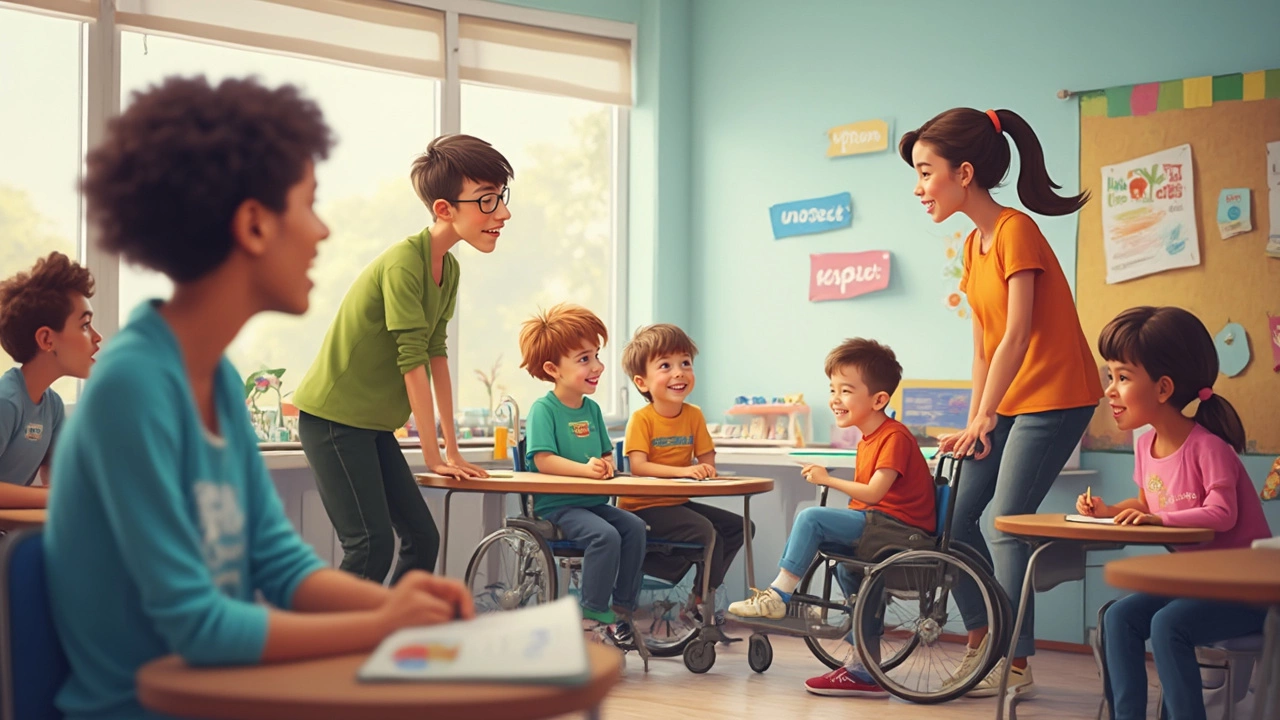Disability Resources at Ballywalter Primary School
Looking for clear, useful advice on disability and inclusive learning? You’re in the right place. Below you’ll find short guides that help you understand common needs, use respectful language and find practical support for students and families.
Understanding Common Disabilities
Many families ask what the most frequent special educational needs are. At our school we see autism, ADHD, dyslexia and other learning disabilities day‑to‑day. Each one shows up differently – autism might involve social‑communication challenges, ADHD often brings attention‑control issues, and dyslexia affects reading speed and spelling. Knowing these traits helps teachers adapt lessons, and it lets parents spot early signs.
Our post “Most Common Special Educational Needs” breaks down each condition with real‑world examples. It also lists simple classroom tweaks, like using visual schedules for autistic pupils or offering short, timed tasks for kids with ADHD. Adding a few changes can make a big difference in confidence and achievement.
Practical Tips for Parents and Teachers
Respectful language matters. The article “Polite Terms for Special Needs” shows current, inclusive wording that avoids stigma. Instead of “handicapped”, say “students with a disability” or “learner with special needs”. Simple swaps show you value the child first.
Support doesn’t stop at language. If a student has a learning disability, our guide “Can You Be Smart with a Learning Disability?” explains that intelligence isn’t limited by the diagnosis. It offers study strategies – chunking information, using multisensory tools, and practising with memory techniques like the 3‑2‑1 method.
Parents often wonder about extra funding. The scholarship posts on our site give step‑by‑step advice on finding and winning awards, many of which prioritize students with disabilities. Follow the checklists, meet deadlines early, and highlight any adaptations you’ve already tried.
Teachers can create an inclusive classroom by setting clear expectations, providing choices and reinforcing effort over speed. Small habits, like checking in with a student after a group activity, keep everyone feeling seen.
Need more detail? Browse the full list of posts under the “disability” tag – you’ll find memory tricks, adult learning tips and even food advice for brain health. All the articles are written for busy parents and teachers, so you can pick up useful tips in minutes.
Start exploring now and make your school day more supportive for every learner.
-
18
- 0
The term 'special needs' has quietly slipped out of daily use, but many people still wonder why. This article looks at how changing language can shape attitudes toward disability in education. You'll learn where the term came from, why it's being replaced, and what words are actually more respectful and accurate. There are real tips for teachers and parents who want to be more inclusive. If you've ever hesitated about what term to use, you're not alone—and this article clears things up. Read more
Tags Weight
- education
- exam preparation
- study tips
- adult education
- online courses
- adult learning
- lifelong learning
- distance learning
- GCSE revision
- online education
- private tutoring
- special needs education
- scholarships
- remote learning
- scholarship tips
- financial aid
- international students
- effective learning
- e-learning
- education funding

